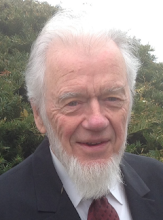Today is New Year’s Eve in the Western world, but as I have done in previous years, I am posting this after the new year has already begun in East Asia. So, in true Japanese fashion, I am wishing each one of you a Happy New Year! 明けまして、おめでとう御座います!*
The new year, 2023, is the Year of the Rabbit according to the
zodiac of China/East Asia. The Chinese New Year doesn't begin until January 22,
but for a long time now Japan has celebrated January 1 as New Year’s Day, although
many of the ancient traditions are still maintained to varying degrees.
As most of you may know, in East Asia there
is a sign for each of twelve years rather than twelve signs in one year as in
the West, and each sign repeats in a twelve-year cycle.
It is easy to guess what year a person was
born in if you know their sign, so in Japan it is common to ask for a person’s
zodiac sign rather than asking their age. If a young senior citizen says they
were born in the Year of the Rabbit, you could easily guess they were born in
1963, not 1951 or 1975.
“People
born under the sign of the rabbit,” according to this
website, “are gentle, sensitive, compassionate,
amiable, modest and merciful, and have strong memory. They like to communicate
with others in a humorous manner.”
My father was born
in the Year of the Rabbit (so as you might guess, he was born in 1915), and the
characteristics given in the previous paragraph seem to have fitted him well. How
do they seem to fit those of you who were born in, say, 1939, 1951, or 1963?
What can we expect in the Year of the Rabbit,
2023? Early
this month, I received a special issue of The Economist titled “The
World Ahead 2023.”
This time, though, I didn’t find editor Tom
Standage’s “Ten trends to watch
in the coming year"
to be particularly beneficial. The first two were “All eyes on Ukraine” and
“Recessions loom,” but perhaps most any of us could have predicted the same
things.
I did, though, think that these words from his final
paragraph were thoughtworthy.
In retrospect, the pandemic marked the end of a period of relative stability and predictability in geopolitics and economics. Today’s world is much more unstable, convulsed by the vicissitudes of great-power rivalry, the aftershocks of the pandemic, economic upheaval, extreme weather, and rapid social and technological change. Unpredictability is the new normal. There is no getting away from it.
So, yes, what the
world will experience in the year ahead is quite unpredictable—although to a
large degree, that is true for every new year.
I asked ChatGPT what the world could expect
in 2023. It quickly replied, “It is not possible for me to predict with
certainty what will happen in 2023, as the future is always uncertain and can
be influenced by a wide range of factors.” That was pretty much a no-brainer.
But the “chatbot” did suggest four “potential
developments” that could take place in 2023, including, “It is likely that
there will be continued progress in fields such as artificial intelligence,
robotics, and biotechnology, which could lead to new products and services that
change the way we live and work.”
That is consistent with what Economist editor
Standage mentioned as one of the expected ten trends in 2023. Apple is set to
launch its first virtual reality headset, which they suggest may be the next “best
thing” in the “metaverse.”** Will they change society as much as
iPads/iPhones have? We'll see.
Regardless of what might happen in 2023, the Year of the Rabbit, I pray that it will be a good year for you—and for the world at large.
_____
* If you
don’t have Japanese fonts loaded on your computer, you may not be able to see
the Japanese words in this sentence.
** As envisioned by Octavia Butler in her 1998
dystopian novel Parable of the Talents, by 2033 such virtual reality headsets
were being replaced by the superior Dreamasks.






